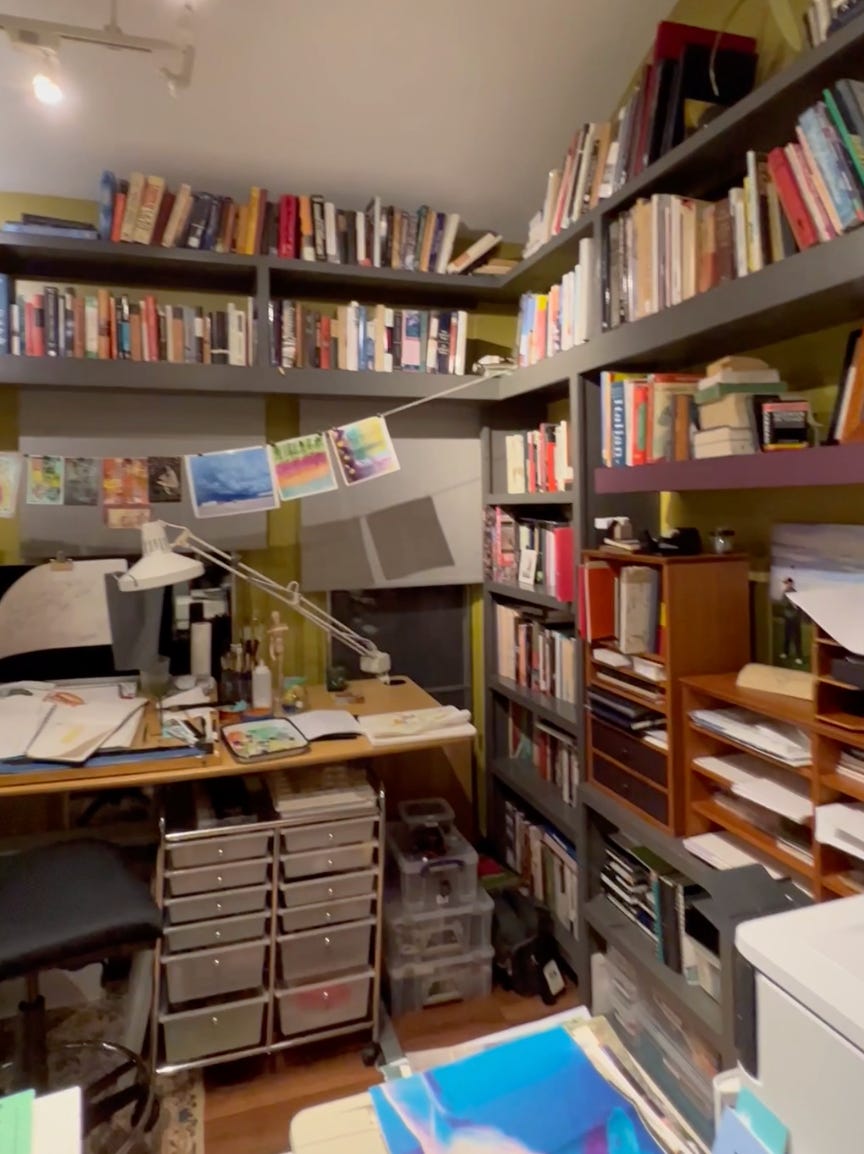On a Piece of Chalk
More on scientists who tell stories. And, collections. Substack February 2023
On a Piece of Chalk
As some of you may know, for the past two years I’ve been working on a memoir. Last week my writing coach asked me to write about my office. Could it be that my office could tell me more about myself than any of the memories of my past?
I began counting my books one shelf at a time, slowly working my way clockwise from one corner around the entire room. I discovered that my office contains over 2,000 books. I knew I had a book problem, but now I could quantify it. I could track a life of curiosities, some compulsive, some flirtatious, others deep dives that fill complete shelves. Sometimes I wonder if 2,000 books might be too much, but in moments like the present, I rejoice that I have such a trove of re-discoverable stories.
Half of one wall contains books about the history of science, mostly 19th-century science in Britain. My PhD advisor at Boston University was a historian of science and he steered me toward a reading list that contained books about famous scientists, such as Charles Darwin, and some not-so-well-known, like Thomas Telford. The history of science is almost as enthralling as science itself; as a historian I’d argue that the history of science and technology is far more telling of our human selves than the details of any single technology.
My books are coming in handy for a project I’m working on at the University of Texas at Austin. Our team is developing some new programs in the College of Natural Sciences and we're pitching a Science Storytelling Studio, a space for scientists to create new ways of sharing their discoveries other than through posters and conference papers. Last month, we produced our first Science Storytelling Studio… as an experiment. An enthusiastic group of co-creators, some scientists, contributed ideas about how scientists can improve the way they communicate their research to the general public.





